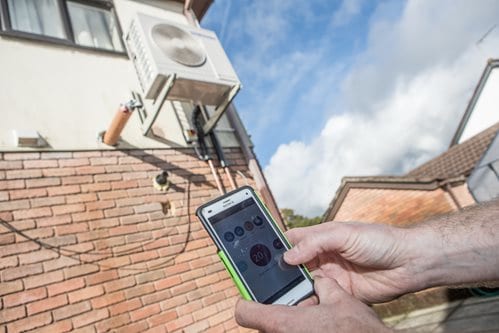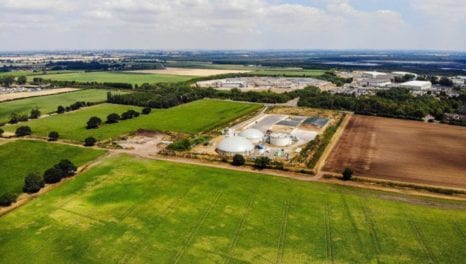WPD taking part in £5.2m innovation trial
Western Power Distribution is playing a major role in a £5.2million heat innovation trial which is taking place in homes in South Wales.
4th July 2018 by Networks

The Freedom project, which is being trialled in Bridgend, is a collaborative energy project designed to deliver a breakthrough for the future of domestic heating systems.
Funded through Ofgem’s Network Innovation Allowance, Freedom (Flexible Residential Energy Efficiency Demand Optimisation and Management) is designed to understand the potential role of installing and using hybrid gas-electric heating systems.
It has recently delivered its interim report with trials taking place in 75 homes.
Uniquely, the project brings the firm together with gas network operator Wales & West Utilities and the aim is to provide robust, field-tested data which can make a meaningful contribution to a long-term whole-systems approach to network investment planning.
Other collaborators include PassivSystems, Delta-ee, Imperial College and City University.
The project has seen the installation of hybrid heating systems across a mix of private and social housing as it seeks to explore the lowest cost route to decarbonise heat using the flexibility to remotely switch between renewable gas and electricity.
Faithful Chanda, who is managing the project for WPD, said: “Designing heating systems which combine gas boilers with air source heat pumps while employing smart switching between the gas and electric load, enables a choice of fuels to match consumer demand for heat.
“This highly flexible approach enables the heating system to take advantage of time-of-use price differences between the two fuels – the so-called fuel arbitrage.
“Innovation has always been a key part of WPD’s development strategy and our ability to take an innovative approach to day-to-day working and the problems that we face has made us a leader in our industry.”
Interim results from the project show smart controlled hybrid heating between an air source heat pump and a boiler running on natural gas offers lower cost and lower carbon domestic heat when compared to electrified heat through air source heat pumps alone.
When there is insufficient renewable electricity generation, when it is very cold or when there are capacity constraints on the electricity network, the heat load can shift across to the gas network and visa-versa to provide uncompromised heat.
Converting 10,000 homes to hybrid heating could save between ten and 20,000 tons of carbon each year and has the potential to help meet the EU’s ambitious environmental targets by achieving a 20% cut in greenhouse emissions compared with 1990 levels and a 20% reduction in energy consumption by 2020.
Comments
Login on register to comment
Related content

Gas
Cadent backs launch of major bio-CNG HGV refuelling station
Gas network’s £250,000 infrastructure investment ensures supplies to existing connected customers have not been impacted

Gas
Editor’s blog: The biggest tests of resilience are yet to come
Network content director Jane Gray reflects on the industry's coronavirus response to date and the challenges still to come.

Gas
From the front line: Chris Garside and Andy Simcoe, Northern Gas Networks
Key workers across the power and gas networks are playing a critical role in the national response to Coronavirus. Network has committed to profiling their stories.
Related supplier content

Power
Load patterns and lockdown: how Covid-19 is impacting electricity networks
Insights into dynamics on the low voltage network as the outbreak unfolds

Downloads
Protect electrical equipment from insulation failure
Insulation faults are a major cause leading to the eventual failure of electrical equipment. Partial discharge (PD) is a very reliable indicator of developing insulation faults. Regular PD testing allows users to detect and analyze PD activity

Heat
How E.ON. is helping the City of London become a zero emissions city
Discover Citigen. Deep in the heart of our bustling capital